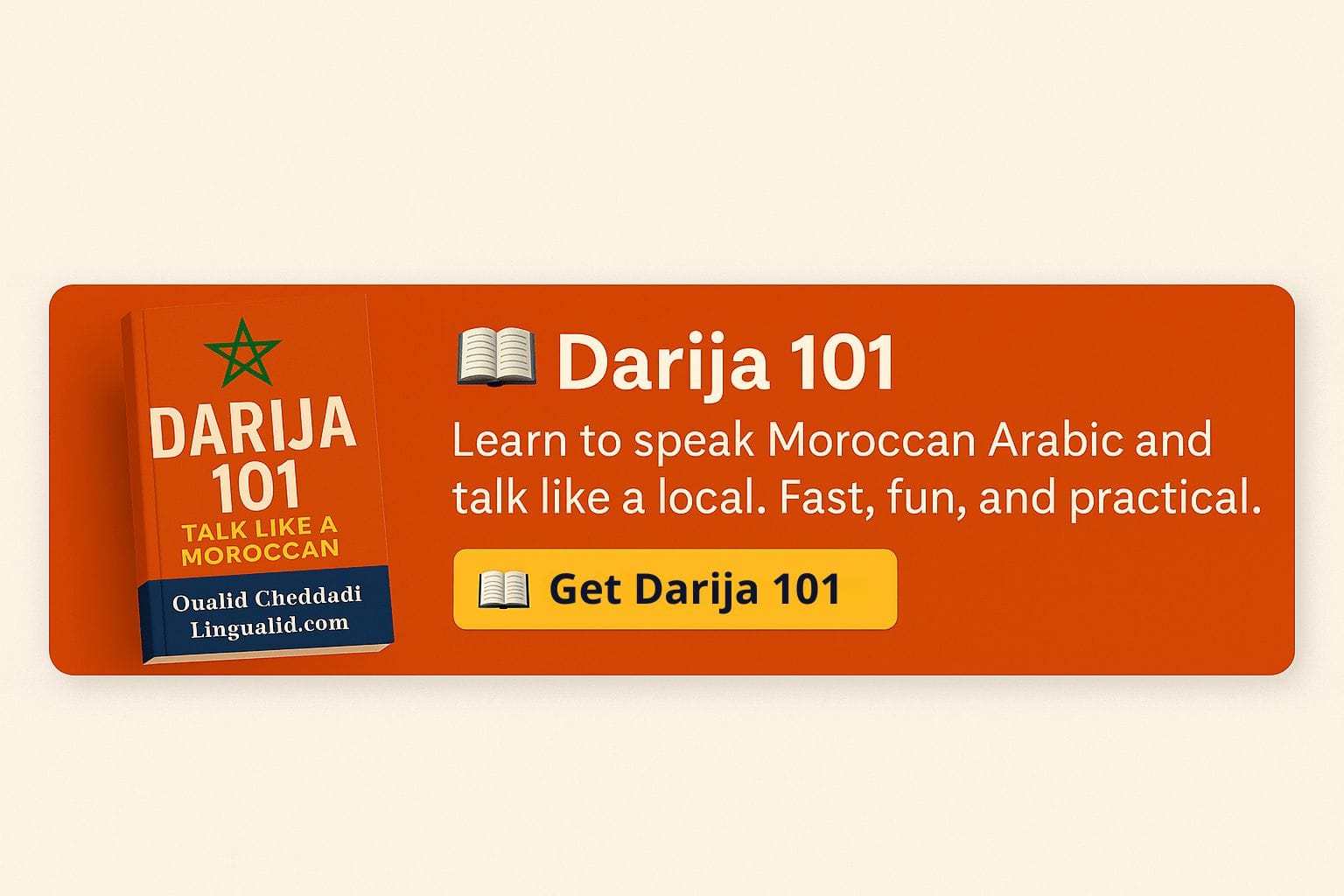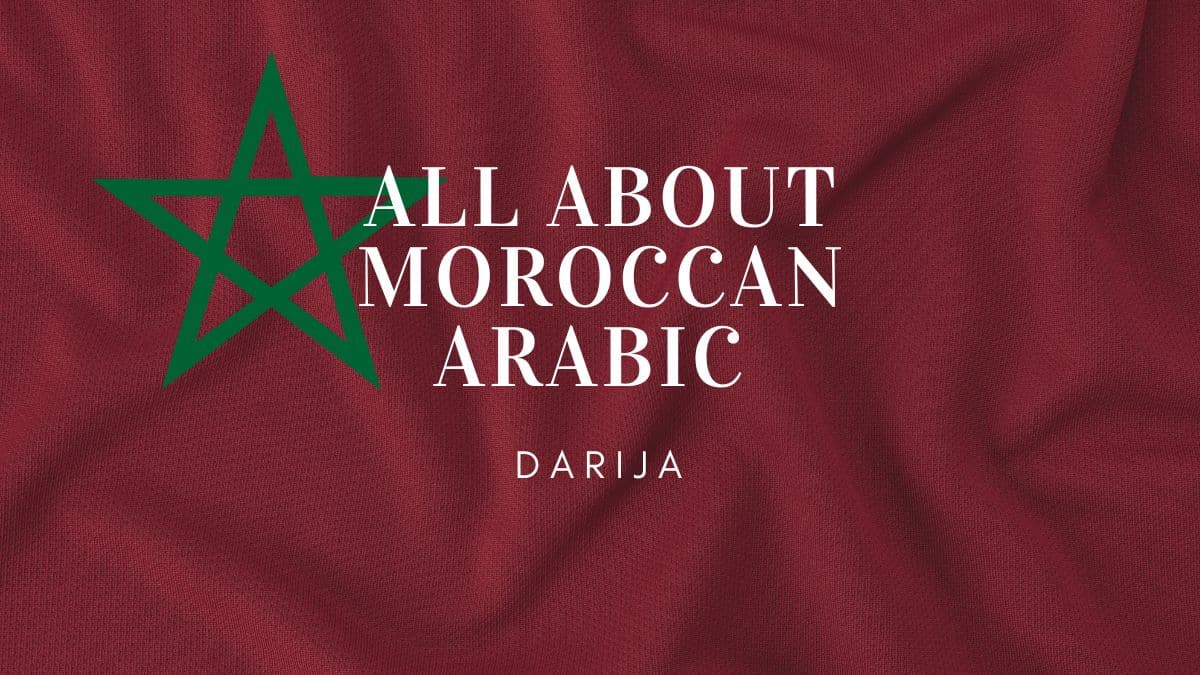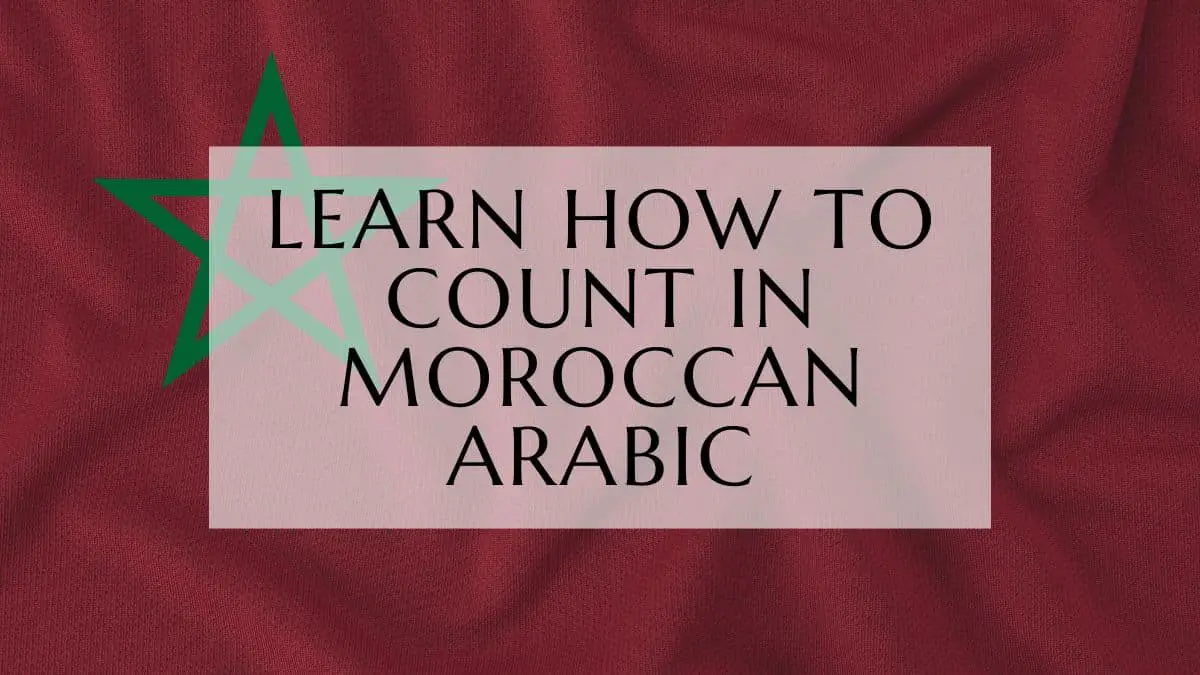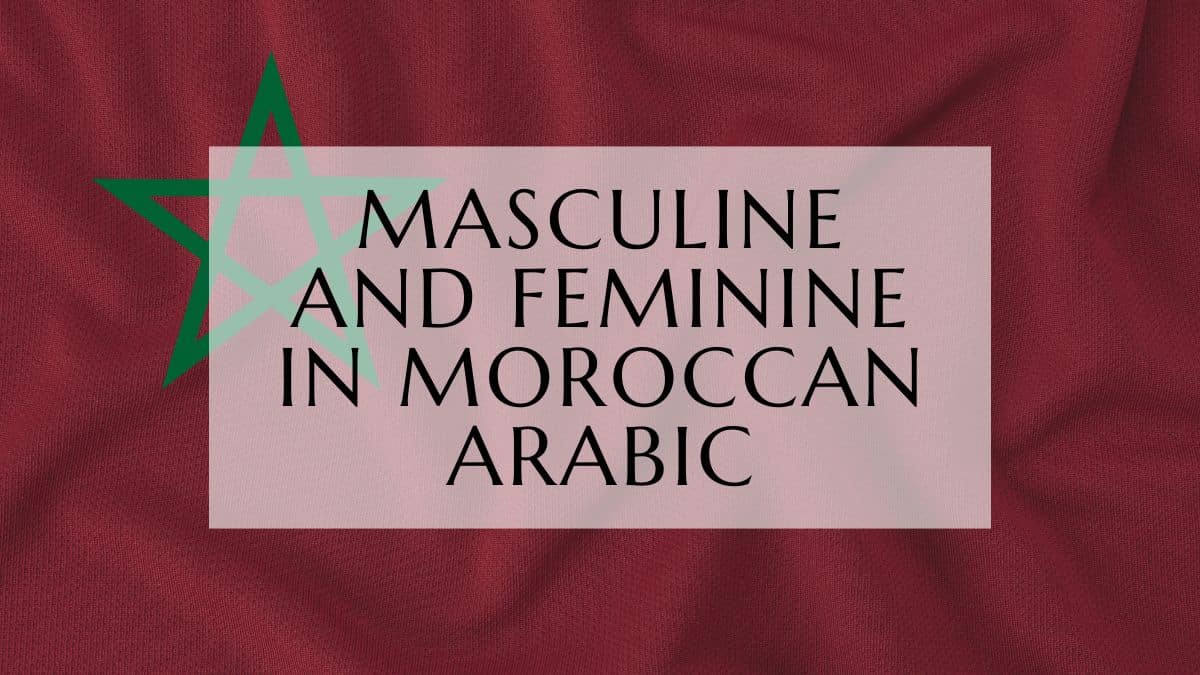There are many ways to say “no problem” in Moroccan Arabic. Knowing these phrases can make your conversations smoother, whether you’re talking casually or formally. This guide will teach you key Moroccan Arabic phrases for saying “no problem.” This will help you communicate better and feel more confident in different situations.
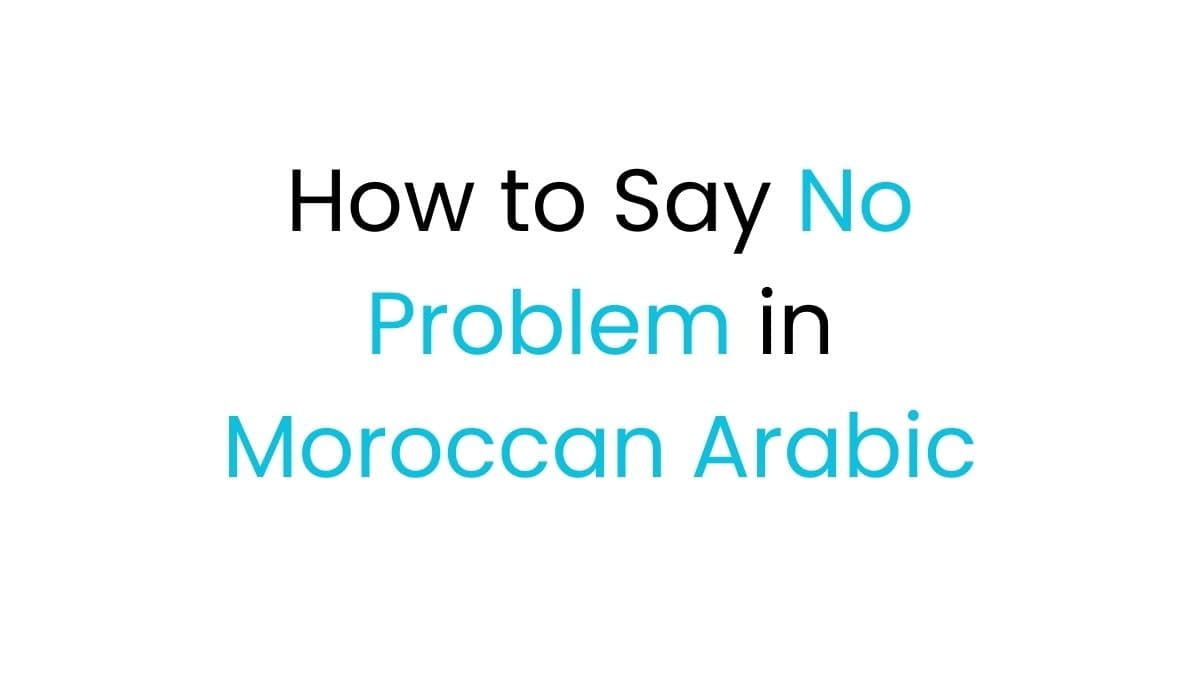
Introduction to Saying No Problem in Moroccan Arabic
We’ll look at the different ways to say “no problem” in Moroccan Arabic. Knowing these phrases makes talking in Darija easier and more confident.
To get good at saying “no problem” in Moroccan Arabic, learn the phrases that fit better. This makes your Darija sound more natural and right for the situation.
The Simplest Way: ماكاين مشكل (makayen mushkil / no problem)
When you need to say “no problem” in Moroccan Arabic, “ماكاين مشكل (makayen mushkil / no problem)” is the easiest and most common phrase. It works well in both formal and casual situations. This makes it a favorite among Moroccan Arabic speakers.
Formal and Informal Usage of “ماكاين مشكل (makayen mushkil / no problem)”
The phrase “ماكاين مشكل (makayen mushkil / no problem)” means “there is no problem.” It’s key to know that “كاين” (kayen/ there is) is a vital part. This sets it apart from the more casual “مشكل (mushkil / problem).”
In formal situations, like at work or in business, “ماكاين مشكل (makayen mushkil / no problem)” is best. It shows politeness and a willingness to help. On the other hand, “مشكل (mushkil / problem)” is more for everyday, friendly chats.
For instance, if a customer at a café asks for another napkin, the server might say, “ماكاين مشكل, غنجيبليك وحدة دابا (makayen mushkil, ghanjiblik wahda daba / No problem, I’ll bring you one right away).” With a friend, you could say, “تقدر تعاوني فهادي؟ مشكل! (teqdar t’awenni f hadi? mushkil! / Can you help me with this? No problem!)”
“ماكاين مشكل (makayen mushkil / no problem)” is great for handling different social situations smoothly. It makes sure your answers are fitting and well-liked, in both formal and casual settings.
ماوقع والو (mawqa’ walo / no pasa nada): Transmitting Tranquility
“ماوقع والو (mawqa’ walo / no pasa nada)” is a special phrase in Moroccan Arabic that means “nothing happens.” It’s often used to tell someone not to worry. It’s like saying “no problem” but in Darija.
When you’re in a situation where you want to say “no problem” in Moroccan Arabic, “ماوقع والو (mawqa’ walo / no pasa nada)” is perfect. It helps make the atmosphere calm and relaxed. Saying this shows you’re not worried about the situation.
This phrase is great for making things less tense. You can use it when you’re sorry for a small mistake or when you’re okay with someone’s request. It tells the other person, “Don’t worry, everything is fine.”
Learning to use “ماوقع والو (mawqa’ walo / no pasa nada)” can really help you in Moroccan Arabic conversations. It makes you seem more confident and reassuring. This can lead to better and more positive talks with people who speak Darija.
ماشي مهم (mashi mohim): Saying “It Doesn’t Matter”
In Moroccan Arabic, “ماشي مهم (mashi mohim / no importa)” means “it doesn’t matter” in English. It’s a way to say a situation or request isn’t a big deal. This phrase shows a relaxed and helpful attitude.
Using “ماشي مهم (mashi mohim / no importa)” is like saying “no problem” in Moroccan Arabic. It means the speaker doesn’t mind helping or doing something. This makes conversations more friendly and positive.
For instance, if someone says sorry for asking you to do more, you could say, “ماشي مهم, نقدر نديرها (mashi mohim, neqder n’dirha / It doesn’t matter, I can do it).” This tells them their request is okay and you’re happy to help.
“ماشي مهم (mashi mohim / no importa)” works well in both formal and casual situations. You can use it with a colleague, a customer, or a friend. It shows you’re not bothered and you’re ready to help.
Adding “ماشي مهم (mashi mohim / no importa)” to your Moroccan Arabic vocabulary shows you’re easy-going and ready to help. It makes you seem like saying “no problem” is the right answer in many situations.
هانية (hanya): Staying Calm and Relaxed
In the vibrant world of Moroccan Arabic, “هانية (hanya)” means calm. It’s used to say “no problem.” It shows ease and tells you to stay calm when things get tough.
Using “هانية (hanya)” means you adjust your tone and body language. It makes you seem calm. This shows you care about the person you’re talking to.
For example, you might say, “هانية, ماكاين مشكل (hanya, makayen mushkil / Calm down, no problem)” to a male friend who is feeling flustered. Alternatively, you could reassure a female colleague by saying, “هانية, عندي كلشي تحت السيطرة (hanya, ‘andi kulshi taht as’saytara / Don’t worry, I’ve got everything under control).”
“هانية (hanya / tranquilo/a)” is great for making tense situations less tense. It shows you’re calm and in control. By saying “هانية (hanya / tranquilo/a),” you calm others down and show confidence.
“هانية, حبي, كلشي غادي يكون مزيان (hanya, hobi, kulshi ghadi ikoun mzian / Calm down, my love, everything is going to be fine).”
No problem in Moroccan Arabic: ماتقلقش/ماتقلقيش (mattqallaqsh/mattqallaqish)
In Moroccan Arabic, “ماتقلقش (mattqallaqsh / no te preocupes)” and “ماتقلقيش (mattqallaqish / no se preocupe)” are key phrases for saying “no problem.” They bring comfort and understanding. They fit well in both everyday talks and formal chats.
“ماتقلقش (mattqallaqsh / no te preocupes)” is how many Moroccan Arabic speakers say “no problem.” It means “don’t worry” and is often used to ease someone’s worries. It tells someone that a certain issue or request is not a big deal.
“ماتقلقيش (mattqallaqish)” is the same but addressing a female.
Oualid Cheddadi is the founder of Lingualid, a platform that inspires independent language learners worldwide, regardless of the language they are learning. The name “Lingualid” is derived from the Portuguese word for “language,” “língua,” and the last three letters of Oualid’s name, “Lid.”

